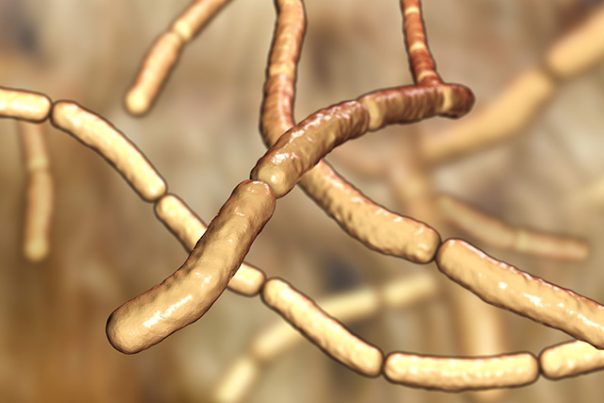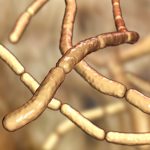
Researchers identify natural peptides that fight bacteria, reducing our need for antibiotics
Saturday, August 04, 2018 by Michelle Simmons
http://www.realsciencenews.com/2018-08-04-researchers-identify-natural-peptides-that-fight-bacteria-antibiotics.html

For decades, researchers have been finding ways to fight disease-causing bacteria in food production without the use of antibiotics. This is because bacteria continuously become resistant to antibiotics due to repeated and improper use.
In a study published in the journal PLOS One, researchers at the National Food Institute of the Technical University of Denmark have found that Cap 18, a naturally occurring peptide, can be used to fight bacteria in food-producing animals. Thus, it can reduce the need to treat sick animals with conventional antibiotics. Peptides like Cap 18 are composed of amino acids and are the building blocks of proteins.
Cap 18 is part of the primitive immune system of animals and occurs naturally in tears from rabbits. It can fight against three bacteria: Salmonella typhimurium, Yersinia ruckeri, and Aeromonas salmonicida. Salmonella is a foodborne bacteria that cause the most disease outbreaks in Europe, while the two other bacteria cause red mouth disease and furunculosis in rainbow trout, inflicting substantial economic losses on the aquaculture industry.
Based on the calculations from the National Food Institute, the commercial production of Cap 18 would be both financially viable and practically possible. However, before Cap 18 or its variants can be used as an ingredient in food or feed, a microorganism would have to be developed that could make the peptide. In addition, the effect of ingesting such product should also be further examined.
Although the researchers do not plan to conduct further research into this particular peptide, they are working to find other naturally occurring peptides and proteins in potatoes and seaweed to be used as a preservative and a functional feed. (Related: Antibiotic resistance is causing numerous scientists to turn to natural, holistic immunity as a better option.)
More reasons to stop using antibiotics
In addition to antibiotic resistance, which threatens the effective prevention and treatment of an ever-increasing range of infections, the use of antibiotics can also be bad for the health. Here are more reasons to avoid antibiotic use:
- Antibiotics induce inflammatory bowel disease (IBD) – Research has established a scientific link between antibiotic use and colitis. Antibiotic-induced colitis occurs due to the toxins excreted by the bacterium Clostridium difficile after antibiotic treatment. Moreover, the spread of Crohn’s disease, an IBD, over the past 50 years parallels the introduction and widespread use of antibiotics.
- Antibiotics severely damage the liver – Antibiotics are most likely to cause severe harm to the liver, according to a study published in the journal Gastroenterology.
- Antibiotics increase cancer risk – Many studies have linked antibiotic use and cancer. In one study, people who had taken six or more antibiotic prescriptions had a 1.5 times higher risk of less common cancers than those who had the lowest antibiotic exposure. Another study suggested that taking antibiotics may increase the risk of developing colon cancer. In another study, people who took two to five antibiotic prescriptions were 27 percent more likely to get cancer, while those who took six or more had a 37 percent increase in cancer risk.
- Antibiotics cause chronic viral illness – Repeated use of antibiotics has been linked with chronic viral illnesses, such as chronic fatigue syndrome.
- Antibiotics cause recurring infections – Research has revealed that treating infections with antibiotics yield to recurring infections more often than those who do not use antibiotics.
Read more news stories and studies on antibiotics by going to SuperBugs.news.
Sources include:
Tagged Under: Tags: antibiotic resistance, Antibiotics, antimicrobial resistance, bacteria, Big Pharma, Cap 18, drug resistance, drugs, goodmedicine, goodscience, immune system, infections, Medicine, natural peptide, research, superbugs





